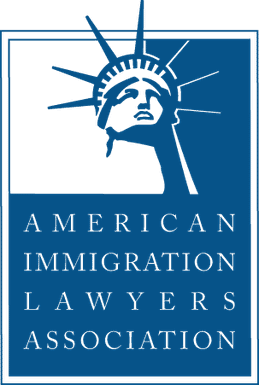On Friday, January 27, 2017, President Trump signed an executive order titled “Protecting the Nation from Foreign Terrorist Entry into the United States.” The order was directed at seven countries: Iran, Iraq, Libya, Syria, Somalia, Sudan and Yemen. President Trump determined that each of the above countries had foreign nationals that posed a threat to the safety and security of the American people. In addition, President Trump’s order suspends the Refugee Resettlement Program for 120 days. Parts of the order have been stayed by a federal judge, but the order itself has not yet been found to be unconstitutional. In the meantime, dealing with the effects of the Executive Order are ongoing.
Below are answers to several questions you might have in light of the Executive Order:
I am from one of the target countries, but have a valid visa, am I banned?
The short answer is yes. The Order as it is written applies to holders of valid visas. This means that if you are a student with a valid F-1 visa, for instance, and are a citizen of one of the affected countries, you will not be granted entry to the United States.
I am from one of the target countries. I am a green card holder. Does the ban apply to me?
No. There is a lot of confusion over which was created by the manner in which the Executive Order was implemented. Initially, green card holders were denied entry. This was improper and unlawful. Green card holders, legally known as Lawful Permanent Residents (“LPRs”), have due process rights that the Customs and Border Patrol do not have the right to revoke. A person may only be stripped of the status as a Lawful Permanent Resident by an immigration judge.
On Saturday, there were reports that green card holders were turned back and also asked to sign Form I-407 (Record of Abandonment of Lawful Permanent Resident Status). On Sunday, the Trump Administration clarified that the Order does not apply to green card holders.
How can I protect my rights if I am a green card holder?
As stated above, LPRs have due process rights that cannot be summarily taken away without an order from a judge. Therefore, it is imperative that you do not sign any documents that are unfamiliar or seem to not be in your best interest. Ask to contact your attorney. You may be detained longer as a result, but your rights will be protected.
Customs and Border Patrol (“CBP”) Agents have a lot of discretion to take travelers into Secondary Screening. Some circumstance where this applies are if you have traveled abroad many times or if you have certain convictions that the Agent deems render you inadmissible.
I have an arrest record. I am not a citizen. Is it safe to travel abroad?
The answer is “it depends.” Convictions for certain crimes can render a person inadmissible under the Immigration and Nationality Act (INA). If you are an LPR, have been convicted of a crime and are a national of one of the seven countries effected by the Order, you should seek the advice of an attorney before you make any travel plans.
The above also applies to citizens of countries not subject to the Executive Order, and for green card holders in general. There are reports that CBP has asked LPRs from countries that are not affected by the ban to sign documents relinquishing their status as a Lawful Permanent Residents. The level of scrutiny placed on all visa holders, immigrant and otherwise, has increased dramatically in a short time. If you have an arrest or a conviction and are not a citizen, seek the advice of counsel prior to traveling abroad.
I am a student in one of the effected countries. I was told I cannot re-enter the United States. Isn’t this illegal?
It is not clear which, if any of the provisions of the Executive Order, will be upheld, but in the meantime, news reports suggest that CBP and the Department of Homeland Security (“DHS”) will continue to deny people entry at ports of entry and will, though airline abroad, prevent people from embarking on trips to the United States if they are citizens of the affected countries. Visas are issued by the United States State Department and do not confer the right of automatic entry into the United States. The CBP permits entry. Although, the granting of a visa usually means that the holder of a visa will be permitted to enter the United States that is not always the case. Two examples of when a visa holder may denied entry are if the person is believed to be a threat to the security of the United States and if the visa holder is a suspected drug trafficker.
Is there anything I can do to lessen the impact on my situation?
If you are an LPR, and meet the requirements for citizenship, you can apply for naturalization. This takes time, but if you are approved will provide you a level of protection LPR status does not.
Whatever direction you choose, consult with an experienced immigration attorney first. United States immigration law is very complex and confusing. There are a lot of potential pitfalls, and you should have as many facts at your disposal as possible prior to making any decisions.
If you are here on a student visa, visitor visa or some other type of visa do not leave. If you do, you face the prospect of not being allowed to re-enter.
There are numerous potential issues that arise from this Executive Order. This blog is informational in nature and NOT legal advice. Consult an experienced attorney if you have further questions related to this topic.
. . . .





